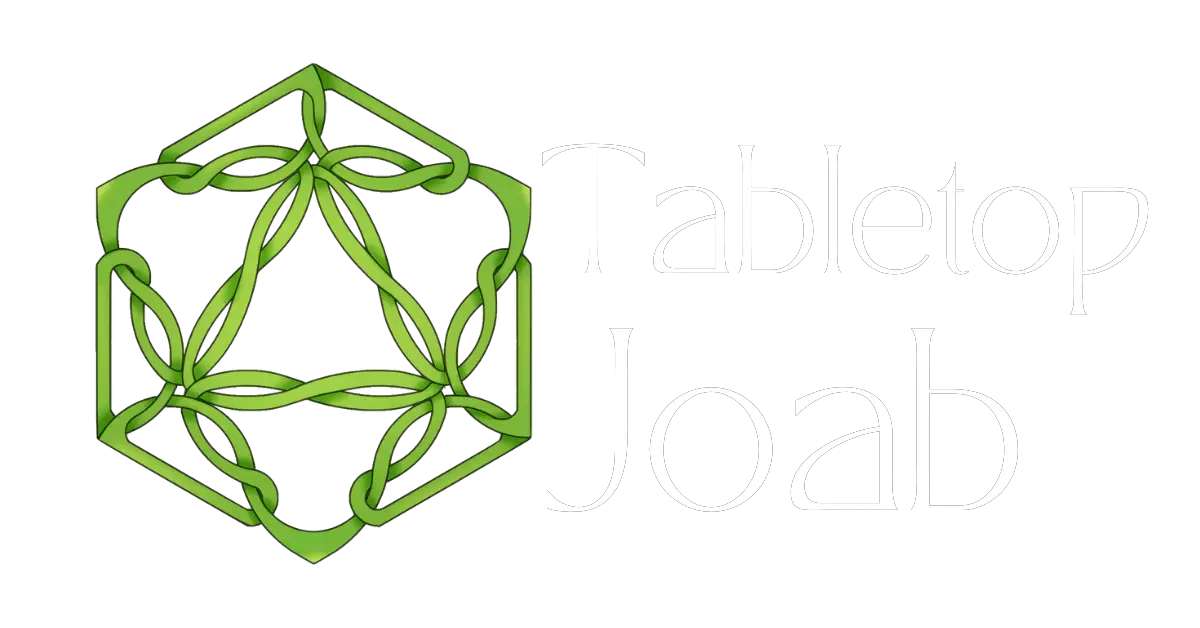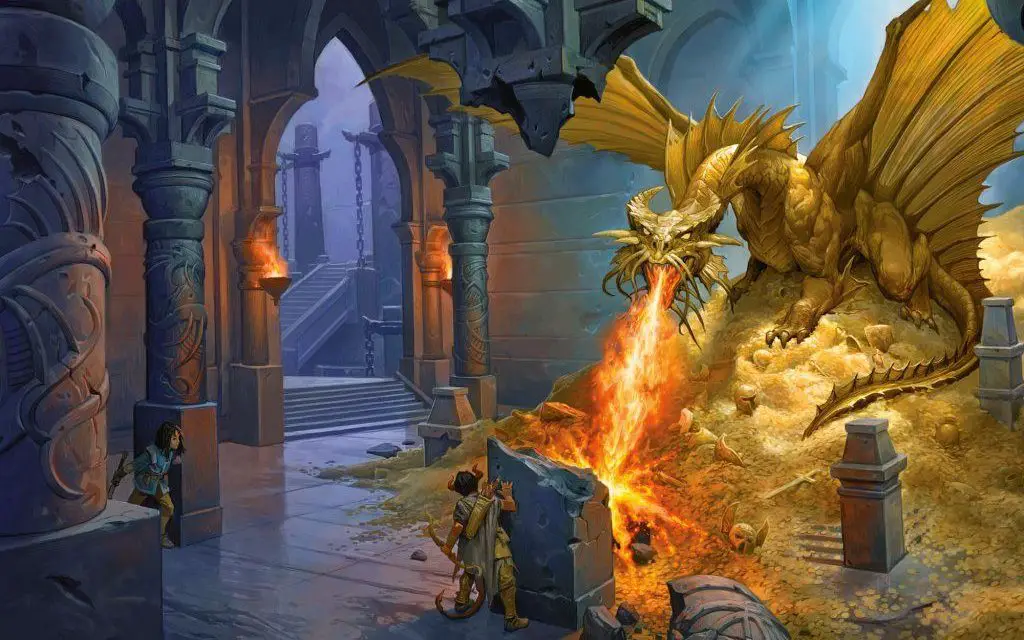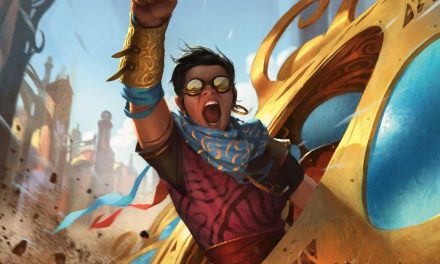Do you DM? Considering going freelance and charging for your Dungeon Master services?
Having a side hustle as a Dungeon Master can be helpful for your wallet, but it’s not right for everyone. Charging as a Dungeon Master means that you will have to put in more effort than those who offer their service for free.
In this article, we’ll discuss the good, bad, and ugly realities of becoming a paid DM.
Charging as a Dungeon Master
Dungeons & Dragons is a tabletop RPG that has been around for over 40 years. At its core, it’s a game that brings people together like few others can claim to do.
I can’t speak to exactly how new the idea of charging for DM services is, but I can claim that it’s become much more common than ever in the game’s history.
The idea of charging to DM can be tempting because it’s an easy side hustle if you’re already used to DMing for your own group.
However, you have to make sure you are not compromising your character as a DM by taking money in exchange for bringing people together to play the game. There are tasteful and distasteful ways to go about it.
Can You Actually Charge as a DM?
DMing has started to become somewhat of a more common side hustle. This is especially true since there are more people getting into Dungeons and Dragons than ever before.
You won’t necessarily get rich doing it, but it can definitely help pay the rent!
The simple fact is that a ton of time and work goes into being a Dungeon Master. You can’t fault the majority of D&D fans who would rather be a player than DM!
However, this opens up some space for those DMs who want to provide their services as a side hustle.
If everyone in a group of friends wants to be a player and nobody is particularly excited to DM, it can just make more sense to look at hiring a DM for the group. They’re looking for a Dungeon Master and you are able to provide that service in exchange for money to compensate you for your time.
Particularly with the incredible popularity of VTTs (Virtual Tabletops) like Roll20 and Foundry, it might not even be necessary to leave your home!
Related: The 6 Best Books That Every Dungeon Master Needs To Read
What Do You Offer?
If you are going to charge as a Dungeon Master, you need to offer a truly unique experience. Players are used to seeing DMs on popular streams and expect their games to be just as engaging.
You can’t just be a “campaign administrator” – you need to really capture their imaginations and make it worth their money.
Are you able to patiently explain game mechanics to newer players in a way that still moves the story along? Have you invested in materials for your game to really make it “pop”? Do you have the time to do all of the necessary prep work to take the game seriously?
If you are not willing or able to follow through on any of these, then it might be best for you to abstain from charging as Dungeon Master. Remember: if your players don’t see value in what they’re paying for, they won’t want to pay!
Professional vs Amateur Dungeon Masters
Branching off from the previous point, you have to be professional if you’re going to charge for DM services.
Most home games between friends are cool if their DM is still learning the ropes, but you’re being paid to be a professional Dungeon Master.
You need to know the rules inside and out in addition to being able to properly coach players who might be newer to the game.
Make it a point to be on time and prepared for every game session. You should know what’s happening in your game!
Furthermore, you need to be willing to invest in the quality of the games that you run.
If you’re going to be DMing as a side hustle, you need to treat it for what it is: a business. That means you’ll have expenses in the form of things like miniatures, terrain, books, or services like D&D Beyond.
Related: Check Out the Review Of My Favorite Terrain!
As a quick note, I wouldn’t recommend trying to charge for your services as a DM unless you have at least a few years of experience and have been the Dungeon Master for at least a couple of different groups.
Not only do you need to be fully versed in the game system, but you need to have experience being the DM for several different types of player personalities.
That’s a major difference between a professional DM (that can justify charging for their services) and an amateur.
Oh and absolutely never take bribes. If a player is trying to give you some extra money so that they can get some kind of super awesome weapon/armor/ability, that sets a very bad precedent. Not only will it throw off the entire game (biting you and the other players in the process) but it’s just tacky.
What Should You Charge?
If you’re looking to charge for your services as a Dungeon Master, you want to have clear rates. If you don’t, it can be difficult for your players to know what they’re getting from the experience.
Charge based on the value that you bring to the group. The more that you bring to the table (both literally and metaphorically), the more you can realistically charge for the experience.
For a typical 4-5 hour session, something like $10 or $20 per player is reasonable. But it’s also important not to charge more than what your players are comfortable with!
If you’re really pulling out all the stops and have all of the premium goodies for players to use, $20 per head might be fair. Generally speaking, though, $10 per head is going to be the most reasonable.
If your players are on the fence about paying for D&D sessions or not, get creative with how much value that you provide in exchange for their money. It’s important that people feel like they’re getting a real experience that is worth their time and money.
You’ll want to keep your rates very clear. Let the players know that this is how much the cost per session will be if they decide to play with you regularly! This makes it easier for everyone involved by letting people budget their expenses accordingly.
On the other hand, if you’re just starting out and want to gain some experience before charging for your services, it might be best to simply offer up a discounted rate in exchange for the opportunity of getting feedback from new players.
I’d recommend having a free Session Zero to set the campaign’s expectations, clarify rules, make characters, and make sure that you and the players are a good fit.
You’re making a pretty big commitment, so you want to make sure that it’s compatible! Otherwise, you could find yourself dreading game night a few months down the road. That’s disrespectful of both the players’ time and your own!
Things to Know Before Charging as a Dungeon Master
If you are going to start DMing as a side hustle, there are some things to be aware of.
It can be an incredibly fun way of making some extra money on the side. That said, you need to accept that sessions that you’re being paid for aren’t going to be the same as those that you’ve played before with your friends.
Additionally, there’s a dark side to charging for DM services that you need to be aware of. We’ll get to that in just a moment.
It’s Not About You
A lot of Dungeon Masters forget that when they start charging for their services, it’s not about the game that they want to play. Instead, it’s about creating the experience that your players are paying you to provide them with!
You’re the Professional Dungeon Master now, which means you need to be able to give them what they want.
Most importantly of all is that your players are having fun! You can do this by tailoring sessions around their individual preferences and expectations as much as possible.
Remember: It’s not about YOU anymore; it’s about THEM!
(Though honestly, that’s still good advice for any DM paid or otherwise…)
This is why it’s important to understand what kind of gaming experience the players are wanting before you say that you’ll DM.
If you prefer tactical combat games but the players want a more narrative, RP-focused experience like they’ve seen on Critical Role, you need to decide if that’s something that you could run well or not. If it’s going to feel like a chore to you, that will show and the players will wonder why they’re paying you.
Don’t Burn Yourself Out
It’s also important to keep in mind that this is a side hustle. You’re probably going to want to play D&D yourself from time to time! That means you need to be able to set boundaries for your sessions and the players involved.
Be realistic about how many games you have room for per week and don’t overschedule yourself.
A good number of sessions per week is likely three or so, but you can push that to four if it works for your schedule. If anyone starts feeling like they’re being neglected in favor of another group’s game session, then the entire group will suffer!
Furthermore, understand that turning your hobby into a source of income can cause you to feel burnt out without something fun to do in your spare time that isn’t “work.”
Also Read: Overcoming Imposter Syndrome For Dungeon Masters
Separate Work from Pleasure
Not every game that you DM should be paid. There is nothing wrong with just enjoying a game with friends without having to bring money into it.
Think of a bartender, for example. Sure they professionally make amazing drinks at work, but how weird would it be if they invited you over to their home, handed you a cocktail, and said “oh, that will be $5 by the way”?
Keep your games with your friends fun. Honestly, they’ll likely be incredibly excited to also benefit from some of the tools you’ve acquired to better run your side hustle!
Separating your DMing work from your fun time with friends is very important to do. If you suddenly start trying to charge your long-time gaming buddies every week, they’ll probably laugh you out of the room. That’s just simply not your relationship!
Player Personalities
As a DM, you’re going to encounter all kinds of personalities. Some may be incredibly serious and others more laid back; some players might not really care about the system mechanics behind D&D but prefer roleplaying over combat; etc.
Where in a game with friends you would have more say in who is in the group and who isn’t, it’s different when you start charging.
You’ll almost certainly encounter some personality types that aren’t exactly your ideal type of player, but you have a (paid) obligation to still provide this person with a great D&D experience!
To a degree, you need to realize that this is not your group. The reality is that there will be times that you just have to deal with it.
That said, if someone is being outright hateful, abusive, offensive, or what have you, that’s a different issue. As the DM, you’ll still need to call attention to the behavior expectations at the table.
Just remember: you are being paid as a professional DM and need to act like it!
Is It Wrong to Charge as a Dungeon Master?
Across various Facebook groups and comment sections, it seems like the idea of DMing as a side hustle is a bit controversial. Whether people are for or against it, it seems like it tends to generate strong emotions either way.
But is it wrong to charge as a Dungeon Master?
In my opinion, there is nothing wrong with charging for your services as a Dungeon Master. As long as you’re doing it as a professional and actually bringing value to whatever group has hired you.
After all, it’s a skill and there are players who are happy to pay for a professional DM.
Not only is this a way for you to make some extra money, but it’s also good for players who might be having a difficult time finding a dependable DM.
You just have to take it seriously and provide a great experience to make it worth the money!
If you’re focusing on providing a wonderful gaming experience for the players who are paying you, I don’t think it’s wrong to charge for your time and expertise.
You Might Like: What If Quentin Tarantino Was a DM?
My Two Cents
With all of that said, much of the power of D&D is that it’s ultimately a social game that makes for a great way to make friends.
I totally get that sometimes you just have to figure out a hustle to make ends meet, but I think that also frames the context of your relationship with your players/clients.
The sad truth is that they’ll pretty much only be exactly that: clients.
It’s one thing to ask everyone to throw in for pizza or whatever. But when you start bringing money to the game table, I think it kind of puts a ceiling on what your games can be.
If Player A loses their job and can’t afford to pay the $10 a week to play, are they just out of the game? So now they’ve lost both their job AND the weekly game that they’re so invested in?
Maybe you make an exception and tell Player A that it’s fine. Then the other players might try to find reasons why they shouldn’t have to pay either!
“But you let Player A keep playing!” they might say.
It’s a no-win situation.
Personally, I enjoy my D&D games most as a breakaway from reality. It’s an opportunity to escape the real world, tell an unforgettable story with friends new and old, and enjoy the world’s greatest roleplaying game.
I’ve been paid as a DM before, but it honestly just felt weird. Realistically I know it was my friends helping me out in a weird part of my life, but it was still strange to me.
Ending a high-adrenaline session with everyone gathering their things and excitedly talking about what just happened is an awesome feeling. Having that broken with someone saying “I sent the money to your CashApp” just makes it feel awkward.
I’m not here to fault anyone for running a side hustle. It’s just not really my kind of D&D experience.
Conclusion
Dungeon Masters are an integral part of the gaming experience. If you have a passion for running D&D games then it may be worth considering this as a side hustle as a way to make some extra money while doing what you love.
Just be mindful of the risks and obligations when taking this on as a side hustle in order to charge people. If you’re charging people, they’ll expect your service to meet certain expectations and standards – so prepare accordingly!
This has been an interesting subject to reflect on and I feel like I could waffle on all day about it. If you have any thoughts or questions, let’s talk in the comments.
I’m especially curious to hear of others’ experience either paying for a DM or being paid themselves for DM services!
Want to stay up to date with all the latest tips, tricks, guides, and occasional D&D rants from Tabletop Joab? Sign up for my newsletter below!






![Help! My Player is in Love With an NPC! [GM Tips for Cringe-Free Romance]](https://tabletopjoab.com/wp-content/uploads/2024/11/Dnd-Player-in-love-with-an-NPC-Tabletop-Joab-Cover-440x264.png)


